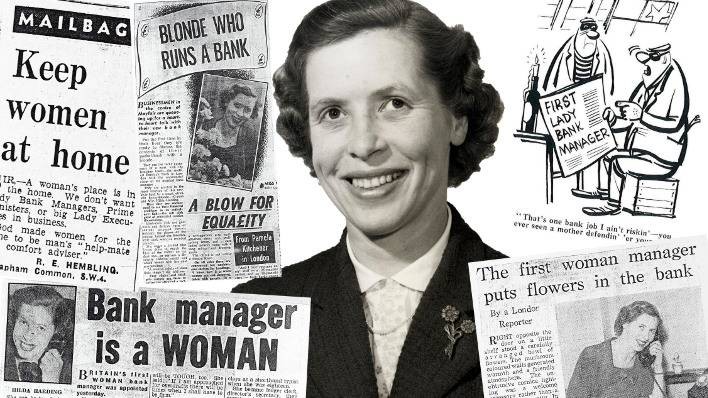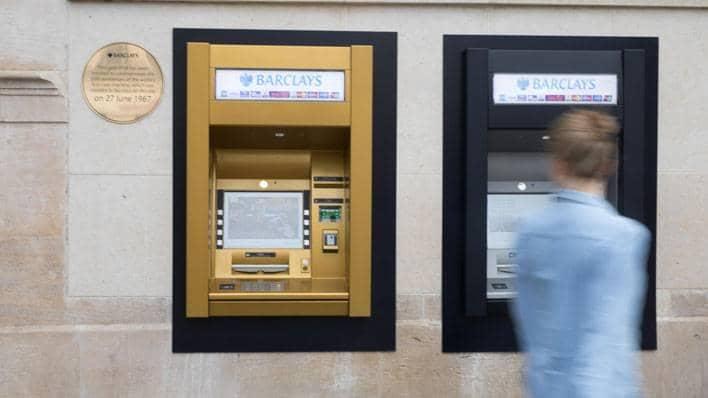
From the archives: The ATM is 50
From the moment the velvet curtain was drawn back at a Barclays branch in London’s Enfield, the way we bank was altered forever
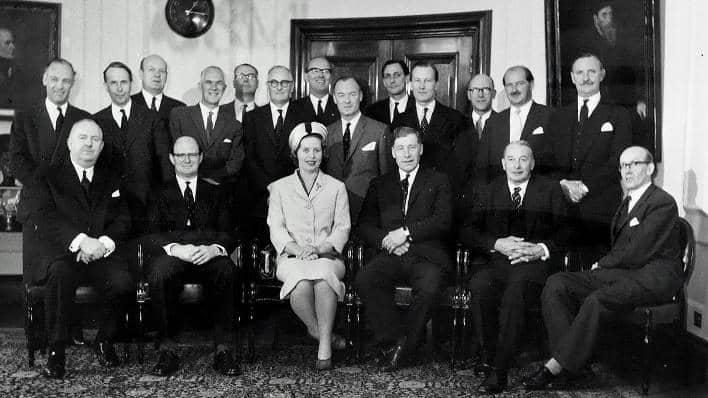
“Bank manager is a WOMAN” shouted the headline of the Daily Mirror, on 17 May 1958. The occasion for such drama was the appointment of Hilda Harding as Britain’s first ever female bank manager, at Barclays’ new Hanover Street, London branch.
Harding joined Barclays as a shorthand typist in 1934 and spent her career with the bank until her retirement in 1970. The press furore over her elevation gives an insight into how shattering such an appointment was, almost 20 years before the United Nations instituted International Women’s Day in its modern form. In an interview in The Tatler, Harding was asked whether there were any other women bank managers in the world: “Only two that I know of,” she replied, “one in China and another in Chicago, and I believe the Chicago bank deals with only women clients.”
With coverage focusing notably on the colour of Harding’s hair (“honey blonde”) and the contents of her wardrobe (“velvet-trimmed blue jersey dress and pearls”), it was left to R.G. Thornton, Barclays’ general manager, to remind journalists that “we approached this appointment purely on the basis of merit”. Meanwhile, the Investors Chronicle expressed “some doubt over the Bank’s psychology” asking whether the “average woman” would not rather have a “personable man” as their bank manager.
At the time of Harding’s appointment, women in banking still worked on an entirely different official pay scale to men, and although pay for younger Barclays staff was equalised in the 1960s, the use of separate scales continued until the Equal Pay Act of 1970. A marriage bar (in force until 1961) also meant that women were contracted to resign their positions on entering marriage. A photo of Harding taken at a luncheon party in the boardroom at Martins Bank [above] shows just how unusual it was for a woman to penetrate what was still very much a man’s world, and what a ground-breaking step towards equality Harding’s promotion represented.
Asked whether there would be more female bank managers – or, as the Glasgow Herald defined them, “managerettes” – in the future, Harding replied: “There is no reason why not. Barclays like to encourage young women just as much as the boys.” The Star, a now defunct London evening newspaper, concluded - with a questionable definition of what “normal” constituted – that: “It will be some time before the City gets back to normal again.”
Harding herself was more interested in the job at hand, writing in 1988 that: “…sensational though the reporting was at times, it was instrumental in giving me the courage to face all that was to follow”. She described her determination to promote other talented women to senior roles, saying: “We opened with a staff of six, four women and two men… When I retired there was a mixed staff of twenty three…and a profitable business.”
Read in full some of the press cuttings about Hilda's appointment (PDF 8MB)

From the moment the velvet curtain was drawn back at a Barclays branch in London’s Enfield, the way we bank was altered forever
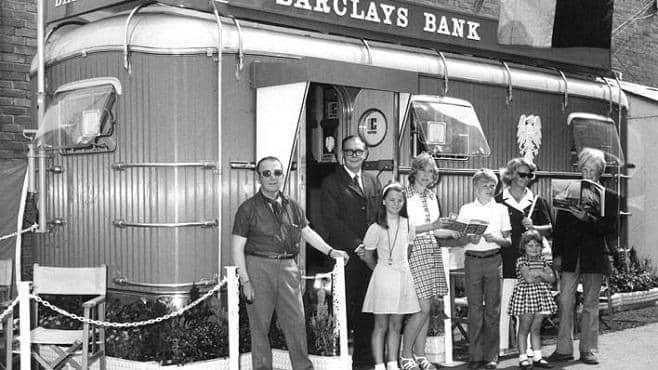
Barclays’ commitment to meeting customer needs has seen the bank conduct business in the unlikeliest of places
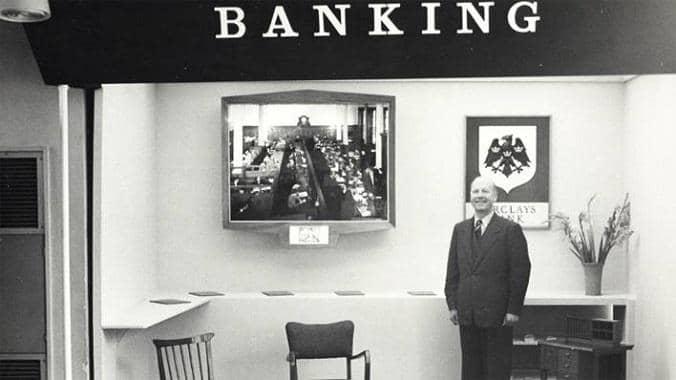
The drive for Barclays to identify top talent began more than 325 years ago
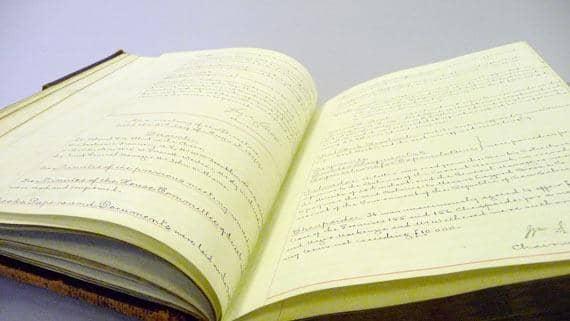
Barclays Group Archives are home to the records of Barclays PLC and its predecessors, dating from 1567 to the present day
